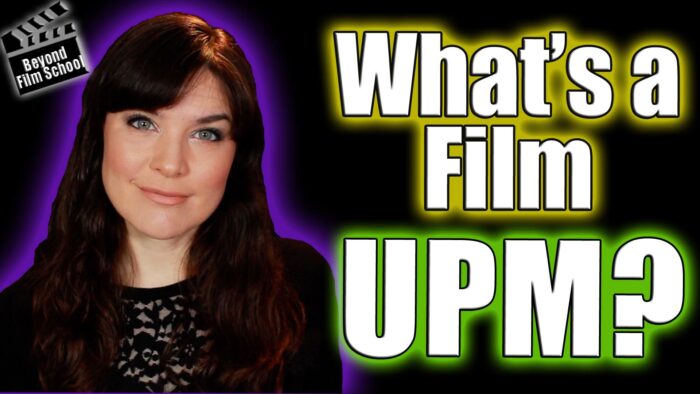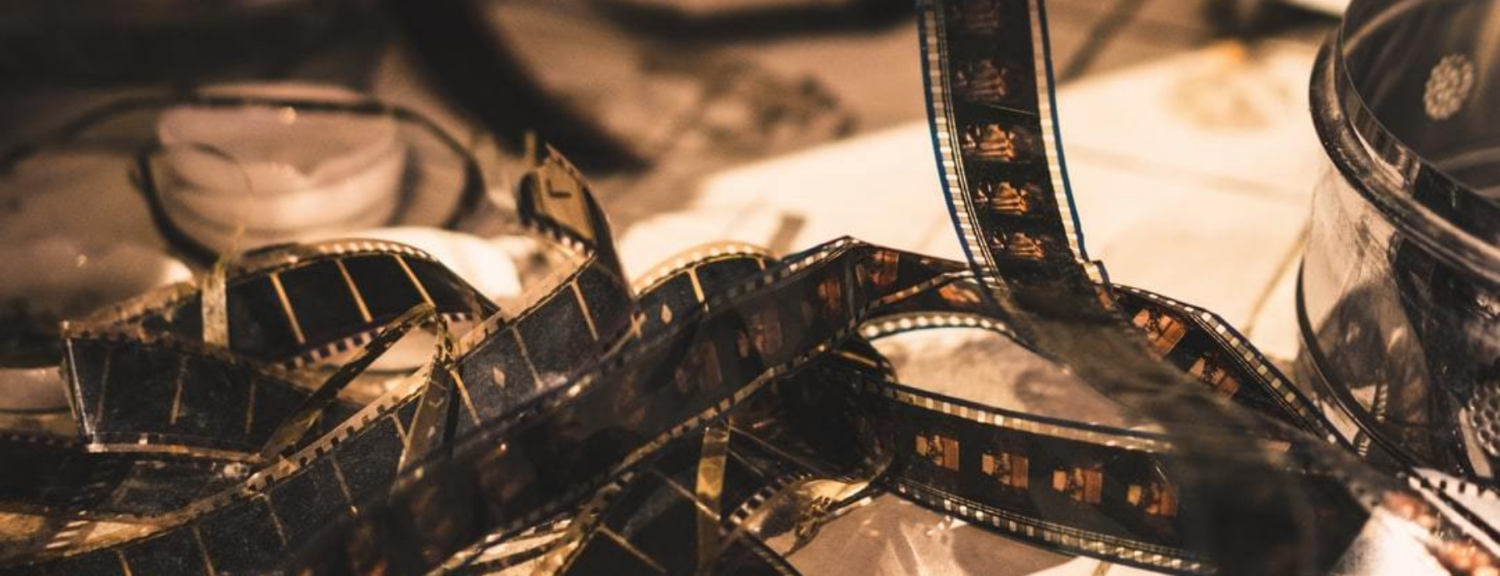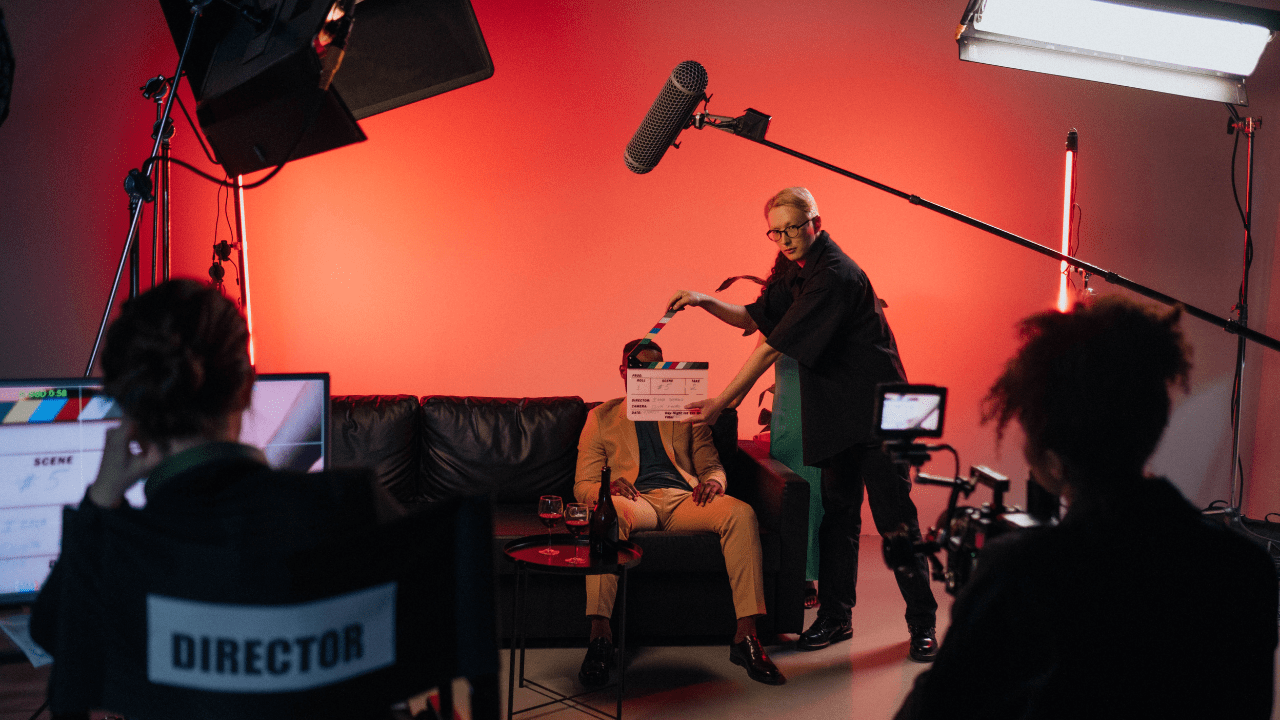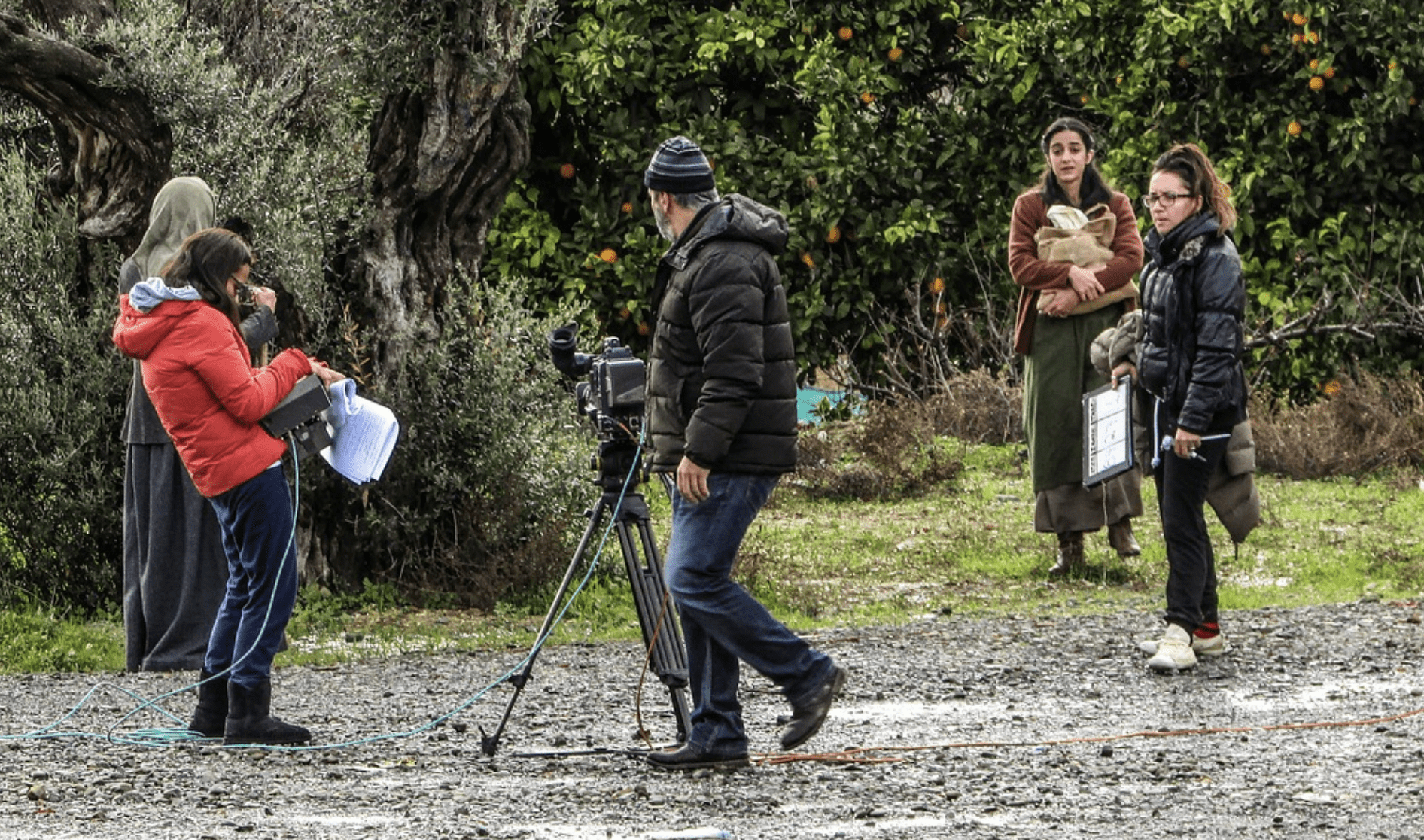
What Does A Film Unit Production Manager Do?
The Unit Production Manager is honestly a very mysterious position in film. No one knows what they do really, but they are super important to a production. In this post we are going to get into their responsibilities throughout the Prep, production, and when a principal photography wraps. We’ll also cover some of the skills, and characteristics that great UPM should have.
What is a UPM?
UPM stands for Unit Production Manager. That’s their official title. And sometimes you might just see just Production Manager. And NO, they are not line producers. A lot of people out there do tend to make that mistake. They are two different positions. But they do work closely together.
The UPM reports to the Line Producer. So the line producer is the UPM’s boss, but sometimes now this is where it gets tricky – sometimes they are indeed the same person! You might have that happen on smaller projects, one person being the UPM and the Line Producer. So there’s going to be one person covering all those responsibilities!
On your bigger budget film productions there’s usually a Line Producer and a UPM. Now that that is out of the way – The UPM is the overseer of production as a whole. They make sure that a project that’s put in front of them gets made – first and foremost, and hopefully on budget.
Ultimately they execute the plan that was put together in Pre-Production, and they try not to break the bank while doing it!
They’re managing the day-to-day business side of production. This can be anything from if the crew goes into overtime to if a hairstylist needs more hairspray. Or maybe if the Director of Photography has to hire a Steady Camera Operator for the day to making sure that the caterers have enough food for everyone on set. Basically the UPM is a resource manager and their resource is MONEY!
Pre-Production Responsibilities
The Budget
During Pre-Production the UPM is drawing up a logistical plan for production – for when we actually start shooting.
The UPM will receive a budget from the Line Producer while also drawing up a plan for production. They take that budget and break it down into each department.
- What does each department get?
- What are their needs?
- How much is going to go toward personnel and equipment?
The Schedule
They’re also working with the 1st Assistant Director on creating a shooting schedule. The 1st AD does in fact create a shooting schedule, but then the UPM is going to make sure the shooting schedule is actually feasible. They usually have an ideal amount of days that the production can shoot. There is a back and forth with the 1st AD and the UPM to come to an agreement on how many days are needed to shoot, and how much they can or NEED to extend the budget for the amount of shooting days.
Hiring
UPM’s share the crew hiring responsibility with the Line Producers, and other Producers.
They hire the ADs, certain department heads – maybe they might hire the head of the Hair Department or the Sound Mixer. They’re also working with certain vendors. For example, they’re hiring the caterers, or maybe craft services, additional labo,r or consultants needed.
Locations
They’re also overseeing location scouting and how much it might take to get a location. So for example, a director might totally be in love with something, but it might be too expensive or it might be too small to compensate and whole entire crew. So they’re kind of keeping the big picture in mind when it comes to location.
- Is it financially feasible?
- Can the whole crew fit their staging?
- Will trucks fit?
- Special equipment needed?
- What can we give up, for a more desired/more expensive location?
There is definitely this weird negotiating push and pull when it comes to really wanting a specific location when it comes to the vision of the Director and the project as a whole. Yes, as a UPM you want to save money where you can, but you want to make sure you give the project the production quality it deserves.
Also don’t forget those contracts, and permits! The UPM is going to make sure that the contracts for those locations actually happen. They want to make sure everything is laid out in that contract for everything that the production needs from that location. As for the Permits – they need to make sure the production has permission to be in certain zones, cities, or streets when it comes to the towns, state, and cities they’re shooting in.
- Where can crew park?
- Where can the working trucks go?
- Can basecamp and the trailers park on the street?
- What streets need to be blocked off for shooting?
- How many Police Officers do we need for the day?
Accommodation
Don’t forget about housing! When you have those distant locations or maybe they’re in a rural area for a week or they’re upstate somewhere random in the middle of no where and they’re bringing a crew in, they have to figure out housing accommodations for the cast and crew, and no ho much that will cost production.
They’re Not on Their Own
There are a bunch of budgetary decisions in all of that was mentioned above, but don’t think they’re doing it all on their own. They have a bunch of people that are going to be helping them with all of this. They have Production Coordinators, Assistant Production Coordinator, Production Secretaries, and Office PAs.
But on your smaller scale indie productions, they’re kind of doing this all on their own and they’re kind of alone just doing it all by themselves!
Production Responsibilities
What are you UPM’s doing when we’re actually shooting a lot? This is where it gets interesting. All that planning we did before the Unit Production Manager is going to make sure that it all goes according to that plan. Their main agenda here is to make sure that the project actually can get made without hemorrhaging money.
As a UPM you should be a presence on set (especially on location!) Their onset about 70 to 80% of the time, and they are usually on the phone, and the rest of that time, it’s them usually trying to answer hundreds of emails and those emails primarily consists of a lot of people asking for more money.
Things Change – The Plan Changes
Maybe some things got switched around, which means more of the cast are coming in for the day and they need to be picked up, which means more vans and more vans means more van drivers, which costs more money!
Those changes and things like that might not have been in the initial plan talked about in pre-production, because maybe they had to punt a scene to the next day and things got flip-flopped in the schedule.
A day that was only going to cost $10,000, now might cost about $20,000. And this is where the UPM really comes into play because now they have to play Tetris and they have to move things around.
Information
Another responsibility of the UPM is to make sure that the Director, Producers and the Line Producer are all aware of some of these budgetary changes that differ in the Initial plan. If for some reason there’s going to be changes in the budget, they have to make sure everyone’s aware of that and give the reasons why those changes are happening.
Day-to-Day
Getting into more of a little details from the day-to-day, the UPM will approve meal penalties – lunch and dinner penalties. They’ll have to approve if the crew’s going to go into overtime and things like that, and those things are going to be told to them by the 1st AD when they tell them where they are in the day when shooting.
That was on the smaller end. And on the bigger end, maybe the director changes their vision. Now they’re asking for a lovely big crane shot – a huge establishing wide of the entire scene. And that was not initially in the shot list or initial plan.
The UPM has to make sure that they have enough money in the budget to actually rent that techno crane and actually pay the crew that operates a techno crane. If that crane shot is going to lift the production quality of that project the Director really, really wants it, it’s going to really make a difference.
Then the UPM is going to try to make it happen. They’re going to pull money from other departments and give it to that techno crane crew and anyone that needs to be given money to make that shot happen. So they’re working on how to make things happen as things change – and ultimately how to make it work when it comes to the vision of the project as a whole.
Crew Morale and Safety
UPMs make sure that the crew is happy and safe. Making sure safety precautions are taken and keeping the crew happy is a huge one.
A perfect example of this is, is the caterer that the UPM hires. If no one is happy with the food, you have a very, very unhappy crew – the UPM has the power to change the caterer. If a few extra dollars per head will make it a little bit better and crew happier – than do it. A happier crew works better for the production!
What’s Happening Tomorrow?
They are always thinking ahead. So if there are certain crew that’s needed, locations needed, permits, contracts, special equipment. They make certain things are rented and ready to go before it’s needed to shoot. They’re always thinking about the future, but also what is happening today and changing.
They have to be flexible and problem solving oriented to make sure that whatever is changing day to day, they can pivot and make sure that things will work going forward.
Remember – UPMs ultimately need the WHOLE project to get shot and in the can!
Saying “NO”
What happens when the Unit Production Manager says, no? For whatever reason, the movie cannot afford another day to rent this car. That is when rewrites happen! Instead of a person driving in with a car in this wide shot, it’s now rewritten that they walk down the street.
During production, the UPM is making sure that we stay on budget, but also give the crew the tools they need to do the job the best they can. UPMs have to understand the project that is getting made. There’s no point in saving a bunch of money when it accumulates to a piece of trash project that no one wants to watch.
Their job is not creative, but they have to create a work environment that nurtures creativity. So all the craftspeople, all the crew, all the creative people that are making things happen, they can do their job and they can do their best work. They have to be sensitive and empathetic to that or else, why are we even doing this?
Wrap Responsibilities
What are UPMs doing once shooting is wrapped and principal photography is done. They’re basically keeping tabs on everything that needs to be returned that was rented. And let me tell you, there’s a lot of equipment rentals! They’re also supervising wrap out days.
They allot how much time each department gets to wrap out of certain locations, the stages, and wrapping out the trucks and returning them back to the lots.
They’re also going over the budget as a whole counting their receipts – If you will. They are making sure that everything is copacetic and everything bounces. They’re ultimately tying up all the loose ends.
Unit Production Manager Skills and Characteristics
The first major one is that you must be Organized! That is honestly the bare minimum for a Unit Production Manager.
Another major one is the Ability to say “No”, and this is hard for some people. So if you can’t say no to people, then you really shouldn’t be a UPM. You gotta be able to decipher whether or not it is needed. And if it’s not then it’s a “NO.”
You have to have Good Judgment, like making those good judgment calls because it’s not about just saying no to everybody in every department, because you have to think about the overall vision of the project and making sure it gets done successfully and hopefully in great quality because you don’t want to box in your crew, your Director, or the vision.
You have to have the ability to say no to the needless things, but also this is where Negotiating skills come in and Compromising because you may not have it initially in the budget to give that crazy techno crane to the Director. But if you compromise or negotiate with other departments to take from here or there then you can give them that crane.
Film Experience comes into play for your skills. It is a hard skill being on set over and over, project after project, your film experience is going to tell you if that random thing is needed for that scene. You’re not going to really be going into a UPM position straightaway – like straight out of film school. It is not at all an entry level position.
Along with your film experience, knowing the Union Rules, because your union rules are going to dictate how you’re going to save a little bit of money when it comes to no penalties, or your NDB(Non-Discounted Break). So, knowing your union rules and making sure you’re not violating any of those union rules when you’re shooting is definitely needed as a UPM. You have to know union rules for all the unions that come together on your set.
You’re definitely going to need Communication skills, People skills, 100%. And of course Leadership skills. And also along with your leadership skills and your Empathy goes a real long way.
Building relationships with vendors is also a skill of a UPM! You are going to have a working relationship with vendors and hopefully you can keep bringing them on to other projects. And if you have a working relationship with them, you can negotiate better deals. Ultimately it makes your job as UPM so much easier.
You also have to know your way around a Budget making one, know a little bit about Accounting, because as I said on the smaller projects, you might be making that budget and you might also be the accountant.
Know your way around a buck because you’re going to be the one controlling the money – who gets what, who gets no money, who gets more money.
As a UPM, you want to make it work for your crew and for the project as a whole. I mean, they say that this position is not creative, but man, you are coming up with some very creative solutions for all the problems that you’re going to encounter on set.
Seeing the little details being Detailed Oriented, or Seeing the Big Picture. The UPM has to have a taste of both of those, because there are little details that a UPM has to get down and dirty with, but also they have to see the big picture and the whole scope of the project.
Past Lives
Many UPMs have worked as location managers, Assistant director, Production Coordinators. And also some Accountants have become UPMs
One thing I will tell you, if you want to be a UPM, you have to work on set and you’ve had to work in the office because it’s both worlds. You have to have both on set and in the office experience, you can’t just do one or the other because you have to know how both of those worlds work when it comes to the union world.
Just one quick note, the Unit Production Manager are part of the DGA, the Directors Guild of America, and they get a pretty nice rate for all that they do – so very deserving! And if you ask me, they probably deserve more money for all that they do.
If you want to learn more the video about the Unit Production Manager is right below for you.




